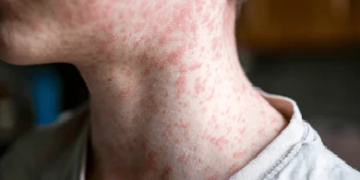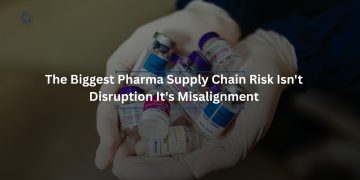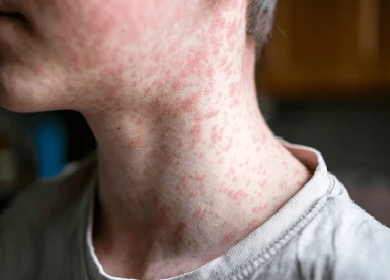River blindness, scientifically known as onchocerciasis, is a parasitic disease caused by the worm Onchocerca volvulus. This condition is transmitted to humans through the repeated bites of infected blackflies (Simulism species) that breed near fast-flowing rivers and streams, mainly in Africa, Latin America, and Yemen. The disease is one of the leading causes of preventable blindness worldwide and also causes severe skin problems.
For decades, Ivermectin 3 mg has been the cornerstone of global onchocerciasis control programs. This oral antiparasitic medication works effectively to kill the immature larvae (microfilariae) in the body, thereby preventing the progression of the disease and halting transmission within communities. In B2B pharmaceutical markets, the Ivermectin 3 mg Wholesale segment has become vital in supplying large-scale public health initiatives, humanitarian programs, and healthcare distributors.
Understanding River Blindness and Its Impact
River blindness is not just a health problem—it is also a socioeconomic burden for affected communities. The disease leads to itching, skin depigmentation, and eventually, vision impairment or blindness. In high-burden areas, adults often lose their ability to work, while children may be pulled out of school to care for disabled family members.
The World Health Organization (WHO) estimates that over 20 million people are infected globally, with more than 99% of cases occurring in sub-Saharan Africa. Effective preventive treatment, such as Ivermectin 3 mg, has been key to reducing new infections and improving quality of life.
How Ivermectin 3 mg Works Against River Blindness
Ivermectin does not kill the adult Onchocerca worms immediately; instead, it targets the microfilariae—the larval stage of the parasite—which cause the symptoms and are responsible for transmission to others through blackfly bites.
When taken as a single oral dose, Ivermectin 3 mg rapidly reduces microfilariae levels in the blood and skin within 24–48 hours. This effect lasts for several months, during which the risk of transmission and severe symptoms is significantly reduced.
For community-level control, mass drug administration (MDA) programs often distribute Ivermectin at regular intervals—typically every 6 to 12 months—to maintain low levels of infection in entire populations.
Dosage and Administration for Onchocerciasis
The recommended dosage of Ivermectin for river blindness is based on body weight, usually at 150 micrograms per kilogram. For many adults, this may translate into several 3 mg tablets taken together as a single dose. The treatment is repeated annually or biannually depending on local transmission rates.
For optimal results, the medication should be taken with water on an empty stomach. The safety profile of Ivermectin is well-established, with side effects generally mild and temporary, including dizziness, muscle aches, or skin irritation.
Why Ivermectin 3 mg is a Trusted Preventive Option
- Proven Efficacy: Decades of use in WHO-led programs have shown consistent success in reducing transmission and preventing blindness.
- Ease of Administration: Oral tablets are easy to transport, store, and distribute, making them ideal for mass treatment programs.
- High Safety Profile: When taken as directed, Ivermectin is well-tolerated across diverse populations.
- Global Recognition: Listed on the WHO Model List of Essential Medicines and used in international health campaigns.
- Cost-Effectiveness: Affordable in large quantities, especially through Ivermectin 3 mg Wholesale
Ivermectin 3 mg Wholesale for Global Health Programs
The demand for Ivermectin 3 mg Wholesale has grown steadily over the years due to international commitments to eliminate onchocerciasis. Public health organizations, NGOs, and government agencies require bulk procurement to support MDA programs in endemic areas.
B2B pharmaceutical distributors play a crucial role here by ensuring:
- Consistent Quality: Meeting WHO prequalification standards for safety and efficacy.
- Bulk Supply Capability: Delivering large quantities to international and rural health programs.
- Efficient Logistics: Handling global shipping with proper storage conditions to maintain drug stability.
- Affordable Pricing: Enabling governments and NGOs to reach millions of people in need.
Reliable suppliers of Ivermectin in bulk, such as MedsExporter, have become essential partners in this mission by providing large-scale pharmaceutical solutions at competitive rates.
Success Stories and Global Achievements
Thanks to widespread Ivermectin distribution, many countries have made remarkable progress against river blindness:
- Several Latin American nations, including Colombia and Ecuador, have officially eliminated transmission.
- African countries such as Ghana and Uganda have reported significant reductions in disease prevalence.
- Millions of people have been protected from blindness, allowing communities to thrive economically and socially.
These achievements highlight the critical role of Ivermectin as both a treatment and a preventive tool in the fight against neglected tropical diseases.
Potential Challenges in Ivermectin Distribution
While progress has been impressive, challenges remain:
- Geographical Barriers: Reaching remote communities in rural Africa or South America.
- Sustainable Funding: Ensuring continuous supply for MDA campaigns over decades.
- Drug Resistance Concerns: Maintaining effectiveness by adhering to proper dosing schedules.
- Storage and Transport: Safeguarding the medicine from extreme environmental conditions.
These obstacles emphasize the importance of reliable Ivermectin 3 mg Wholesale suppliers who can meet urgent and large-scale demands.
The Future of River Blindness Elimination
The WHO and global partners aim to completely eliminate onchocerciasis as a public health problem in many countries by 2030. This ambitious goal relies heavily on the consistent supply and correct use of Ivermectin in at-risk populations.
New research is exploring combination treatments and improved delivery methods to further accelerate elimination efforts. However, the tried-and-tested approach of mass Ivermectin distribution remains the foundation of the strategy.
Conclusion
Ivermectin 3 mg has transformed the battle against river blindness from a near-impossible challenge to a realistic public health success story. Its proven effectiveness, safety, and accessibility make it the most trusted preventive treatment for onchocerciasis worldwide.
The role of Ivermectin 3 mg Wholesale in supplying bulk quantities to governments, NGOs, and humanitarian missions cannot be overstated. With ongoing commitment from global health organizations and reliable suppliers, the vision of a river blindness-free world is within reach.
By ensuring timely and affordable access to Ivermectin, we can protect millions from preventable blindness, restore livelihoods, and bring hope to communities that have suffered for generations.























































